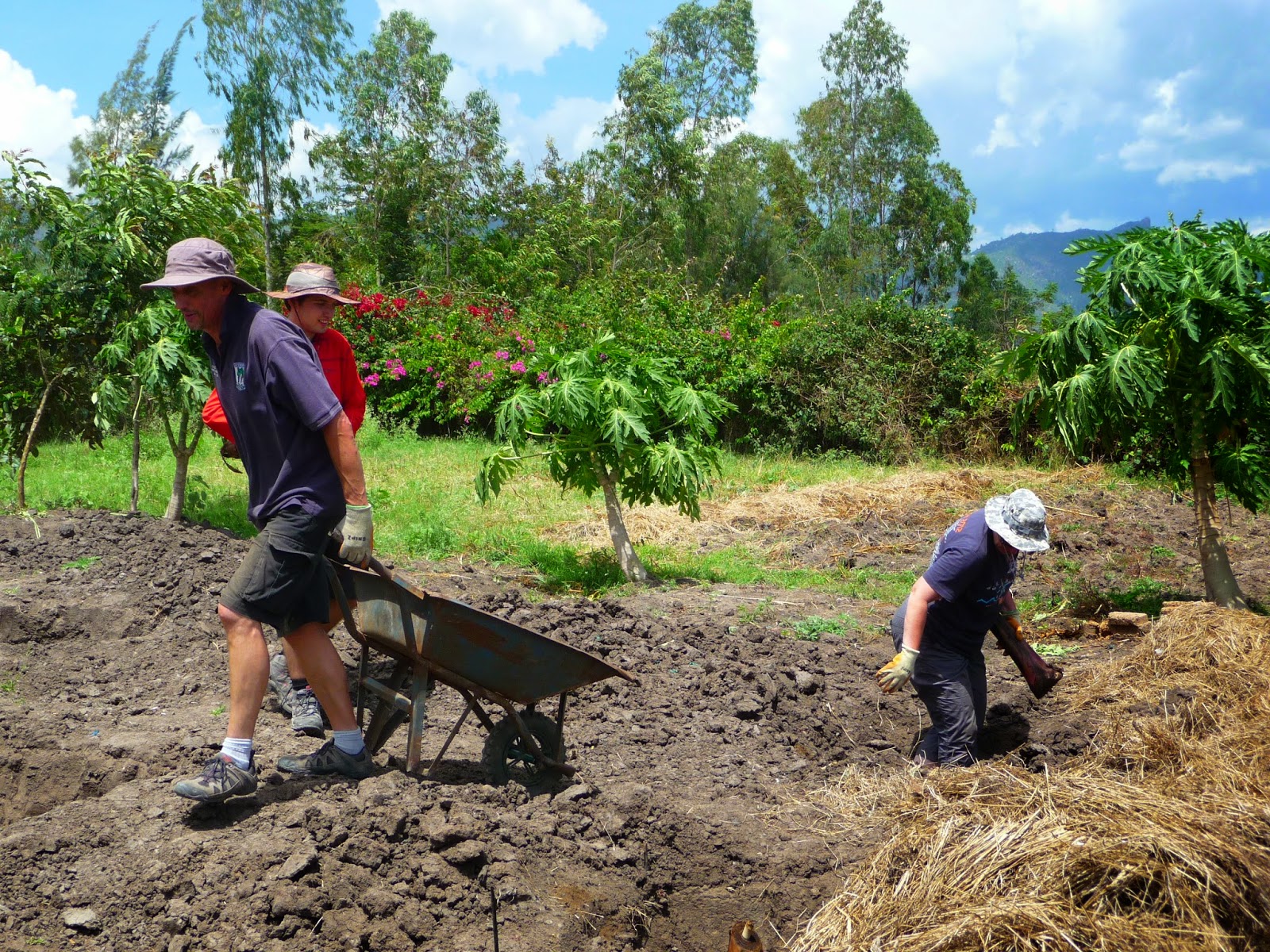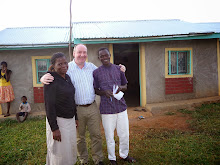“That boy
is really bright”, said Benjamin, the manager at Standard Bank in Kisumu, “He
will go far”.
We smiled
and swelled a little with pride.
We were on
our way back to the airport for the morning flight to Nairobi, having visited
the land at Kibos to check out the completed greenhouse.
We had sweated over the holes for the poles, sweated as we hauled the steel frame into place, sweated as we saw the arches rising tall over the freshly planted banana’s and the newly built tin hut. But we had left the site before the covering was on as the Ackworth group had a safari bus to catch.
But we
couldn’t leave without seeing the culmination of our week’s effort, the fine
mesh sides gently swaying in the morning breeze and small white egrets stalking
gracefully in the grassy perimeter, still wet from the overnight rain.
Kibos is a
warm place, but bathed in the morning light, pink and red bougainvillea bursting
through the thorny hedges, weaver birds chattering in the acacia trees and the
green, stony hills forming a steep backdrop, it takes on a charm of its own.
We opened the door of the greenhouse and
wondered inside, surprised to find that the humidity that will so benefit the
tomatoes and vegetables that we will grow there was already beginning to rise.
We have
much more to do here, the soil inside will need to be dug out and new topsoil,
red soil from the fertile hills above Kisumu, will be mixed with fertiliser and
laid down to form a nutrient rich bed for our plants. The water tanks will be
connected to drip pipes to provide effective irrigation, whatever the weather
outside and then, finally the seeds will be planted.
“So will it
be done by my next visit?” I asked Moses
“Yes, of
course” he replied, “we have a lot of work to do now”
I am
already excited to return.
We left
Kibos to head for the airport, but we had one last job to do.
I wrote
about Collins last year, when I visited him at University. We met him first,
many years ago at Kachok, the fellowship by the city dump. He has already come
a long way, completing his KCSE and gaining a place at university to study
biochemistry.
During the
break he found himself an internship at Standard Bank and has been working
there for 6 weeks. I talked to him at church on Sunday and promised that we
would try our very best to visit him before we left.
We made our
way through the busy streets of Kondele and followed the back roads to town,
pulling up outside Standard bank at the bottom of the high street. As we walked
through the revolving doors the quietness of the bank contrasted with the
bustling streets outside. We stood for a moment whilst Moses spoke to a member
of staff and we were then ushered through to the Manager’s office.
We stood
and talked with the manager for a few minutes. He explained that they had a
short term program that needed extra people, so they looked for university
students wanting to take up an internship. Collins had been asking around town
for that kind of work and he fitted the bill (it is typical of Collins’
attitude that he didn’t wait for the opportunity to come to him, but had been
asking if there was anything available)
“I know his
background”, said the manager, “and I can say that he is a very bright boy. He
is doing really well, I think he can go a long way”
I smiled.
Through
this week we have seen more boys like Collins, bright children who just lack
opportunity. I hope and pray that we can find the means to support them, to
give them hope and a future.
“I know the plans I have for you", says the
Lord, "plans to prosper you and not to harm you, plans to give you hope and a
future”
Jeremiah 29:11















